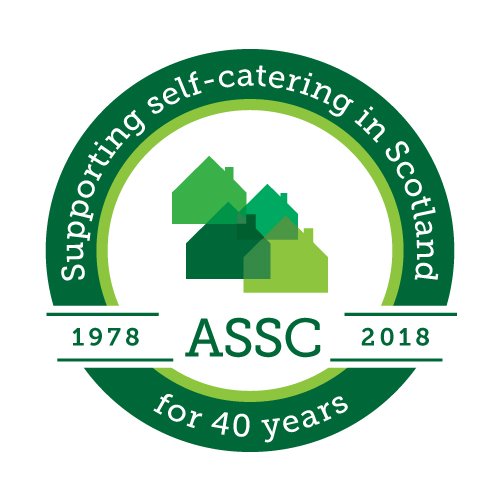A group of prominent business leaders and small business owners have urged the Scottish Government to reject a cumbersome and restrictive city-wide control area on short-term lets in Edinburgh.
In a letter to Cabinet Secretary for Social Justice, Housing, and Local Government, Shona Robinson, which has attracted 44 signatories from across the sector, the businesses stress the damaging impact the new measure will have on Edinburgh’s Covid-19 recovery and the damage it is set to inflict on the city’s diverse, world-leading tourism offering.
The letter goes on to implore the Scottish Government to consider Edinburgh’s unique position as a festival city, leading tourism destination, and business centre.
In a passionate plea to ministers, the group also warns that the decision will bring hugely damaging unintended consequences for the city’s economy, threatening jobs throughout the wider supply chain and depriving small business owners of their livelihoods.
Drawing on evidence submitted by the Association of Scotland’s Self-Caterers (ASSC) to Edinburgh Council, the letter additionally points out that the policy misunderstands the nature of self-catering businesses in Edinburgh, will bring additional pressure on a council budget already stretched to breaking point, and fails to take a holistic view of the housing challenges currently faced by residents in the capital.
The ASSC, and its valued colleagues across the sector, have continually warned against overly restrictive and heavy-handed measures being taken against the sector which contributes around £70m to the Edinburgh economy each year.
In addition to the Cabinet Secretary, the letter has also been sent to Cabinet Secretary for Finance and the Economy, Kate Forbes, Minister for Public Finance, Planning and Community Wealth, Tom Arthur, and Minister for Tourism, Ivan McKee.
Association of Scotland’s Self-Caterers Chief Executive, Fiona Campbell, said:
“Edinburgh’s self-caterers play a key role in ensuring that the city maintains its position as a world-leading destination for tourists and this excessive measure threatens that with extinction.
“Rather than biting the bullet and building more homes, this measure targets an important sector in the economy and will have massive negative ramifications while doing nothing to increase the availability of homes.
“It is for this, and the other reasons highlighted in this letter, that we are calling on the Scottish Government to see sense, back small business, and reach a sensible, pragmatic, and fair solution that works for all.”
Daniel and Sarah Noon said:
“Our inability to operate as a SLT would have a major Impact on us as a family.
“We are a couple with a young baby aged four months and we rely heavily on the business to support ourselves.
Antonia Allan said:
“I have a one bedroom flat in Stockbridge. It has its own front door and is in a sparsely populated mews.
“We have never had any complaints from the neighbours about our guests and we have never had any antisocial guests – just quiet couples enjoying the benefits of reasonable self-catering accommodation.
“If we are refused planning and have to cease to operate it will be devastating for me.
Eddie Harper, Harper’s Concierge Services Limited said:
“Our business relies on approximately 90% of properties within shared stairs, and the new planning requirement along with licensing means we would likely close down.
“This will result in three direct job losses, along with at least 25 cleaning and laundry support staff losing income and potentially going out of business, as they all rely on our existence for their own business.”
ENDS
List of supporting businesses:
- Association of Scotland’s Self-Caterers, Fiona Campbell, Chief Executive
- At Home In Edinburgh, Rick & Vicky McCann
- BNB Property Services, Wojtek Maslanka
- Bonjour Residences, Fan Zhang, Managing Director
- Bookster, Robin Morris, Director
- Calton Hill, Philip Moet, Owner
- Castle Heights, Danielle Birkett
- Cozy with Character, Apartments with Soul, Daniela Nolte, Managing Director
- Dunc & Dees, Duncan & Daniela Forbes
- Dickins, Louise Dickins, Managing Director
- Edinburgh Getaways, Lea O’Connor, Owner/Operator
- Edinburgh Heart Hosting Homes Ltd, Raffaele, Luigi and Stefano, Directors
- Edinburgh Homes Ltd, Marta Kawale
- Edinburgh Property Hub, Shaban Mohammed, Owner / Manager
- Edinburgh SC (Self Catering) Ltd, Glenn Ford
- Edlets.com, Alison Ro, Owner/Directorgers
- Evergreen Property Ltd, Barry Burton
- Gorgie Property Management Ltd, Joseph Kellie, Owner/director
- Grassdrum Management Ltd, Ben Powell
- HandyHouses, Pamela Johnston, Owner
- Harper’s Concierge Services Ltd, Eddie Harper
- Heritage City Lets Ltd, Melanie Angus, Director
- Holiday let’s Assist, Scott Zelenka, Partner
- InnerCityLets, Jon Anderson, Owner / Manager
- InterC Consultancy Partners Ltd, C Soccal, Director
- J5 Developments Ltd / Platinum Serviced Apartments, John Jacobs, Owner
- Landlord’s Little Helper Ltd, Jen Burton, Owner/Director
- Millie’s Lets, Moira Baverstock, Owner / Sole Trader
- MR Properties Ltd, Michael Russell Owner/Director
- Murphy’s Place – The Hopetoun St Apt, Adele Murphy
- North Berwick Getaway, John O’ Brien, Owner
- P and A Developments, Angus Neilson, Owner/Director
- Property Shapers, Karen Di Rollo, Director
- Raza Properties, Shahid Raza
- Reserve Apartments, Craig Douglas, Director
- Serviced Cleaning, Christine Lorimer, Owner / Manager
- Stay In Style Ltd., Belinda and Stephen Caswell, Directors
- Stay to Discover Ltd, Zeshan Haroon
- The Bonnie Thistle Apartments, Jacqueline Robertson, Owner/Manager
- The Edinburgh Address, Anna MorrisSiobhan Lees, Sales and Guest Relations Manager
- The Edinburgh Concierge Co, Linda McDonald-Brown
- The Restalrig Apartment, Susan Walsh
- TLB Property Management Ltd., Tony Leatherbarrow, Owner/Director
- Violet Bank Apartments, Steven MacLennan, Owner
- Western Harbour Apartments, Tony Barry, Owner
- Antonia Allan, Owner/Operator
- Daniel & Sarah Noon, Owner/Operator
- Dawn McRoberts, Owner/Operator
- Georgia Nakou, Owner/Operator
- Glenda A Robertson, Owner/Operator
- Graeme Rae, Owner/Operator
- Jana Fitzpatrick, Owner/Operator
- Lynne Lister, Owner/Operator
- Lynn Murray, Owner/Operator
- Mairi Anne Bowen, Owner / Operator
- Marion McNeill, Owner/Operator
- Natasha Wilson, Owner/Operator
- Ralph Averbuch, Owner/Operator
- Raffaele Ottaviano, Owner/Operator

